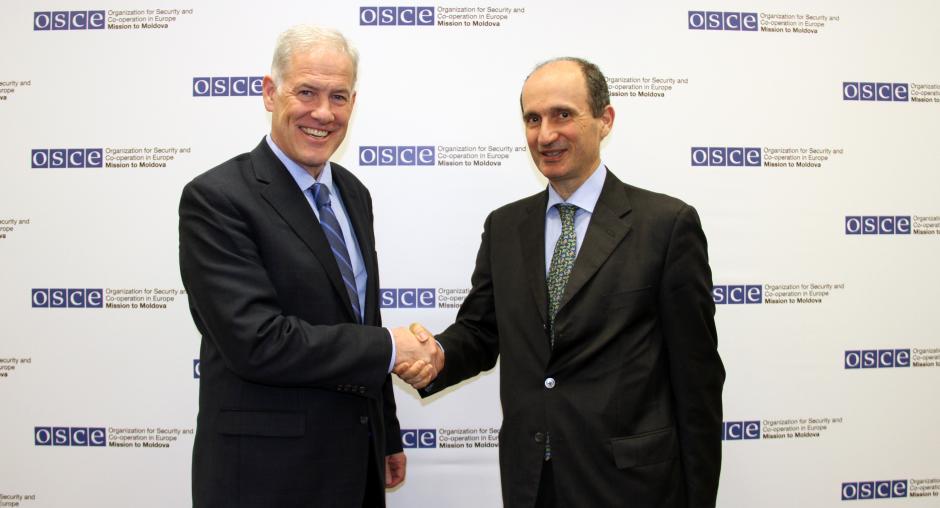Agreements followed by implementation may be the new norm of the Transdniestrian Settlement Process, says Adviser to the OSCE Special Representative

CHISINAU, 22 February 2018 – Alfredo Conte, Adviser to the Special Representative of the OSCE Chairperson-in-Office for the Transdniestrian Settlement Process, concluded a three-day visit to Moldova today. He met with the leadership in Chisinau and Tiraspol, the authorities in the Autonomous Territorial Unit (ATU) of Gagauzia and the resident Ambassadors of the 5+2 Mediators and Observers. His meetings set the stage for an upcoming visit to Moldova by the Special Representative of the OSCE Chairperson-in-Office for the Transdniestrian Settlement Process, Franco Frattini.
In Chisinau, Conte met with Moldova’s Deputy Prime Minister for Reintegration and Chief Negotiator, Cristina Lesnic, and State Secretary of Foreign Affairs and European Integration, Tatiana Molcean. In Tiraspol, he met with Transdniestrian Chief Negotiator Vitaly Ignatiev.
In meetings with the Chief Negotiators, the Advisor to the Special Representative welcomed that local ownership of the process has evolved into the joint implementation of agreements signed in Chisinau and Bender in November 2017. “We see the implementation of agreements recently signed by the Sides and we are on the verge of the conclusion of new agreements. Based on my meetings in Chisinau and Tiraspol, I am confident that this can be the new norm of the settlement process, which will generate benefits for people on both banks of the Dniester/Nistru River,” said Conte. “In this context, I underscored the need to reach an agreement by the end of February on a mechanism to allow vehicles from Transdniestria to participate in international road traffic as committed to by the Sides in the Vienna Protocol.”
In discussions with the Director General of the Bureau for Interethnic Relations, Oleg Babenco, Conte praised Moldova’s adoption of an action plan for its National Strategy for the Consolidation of Interethnic Relations. “Building an inclusive and tolerant society is a never-ending process, which for many countries includes remembrance and study of the Holocaust,” said Conte. The message was reiterated in a meeting with Jewish community representative Alexander Bilinkis who briefed Conte about the progress on the development of a Jewish Heritage Museum in Chisinau, as laid out in Moldova’s Holocaust Remembrance Action Plan.
On the last day of the visit Conte met with Governor of ATU Gagauzia Irina Vlah and Deputy Chairperson of the People’s Assembly of Gagauzia Alexandr Tarnavschi in Comrat. “Affirming fully the autonomy of Gagauzia within Moldova, established in 1994, will serve to strengthen the state, as this is about good governance and the rule of law,” concluded Conte.
Following up on Conte’s visit, the first visit to Moldova by Special Representative Frattini is scheduled for the first half of March. The Transdniestrian Settlement Process is high on the Italian OSCE Chairmanship’s agenda for 2018, under their motto “Dialogue, Ownership, Responsibility”.
